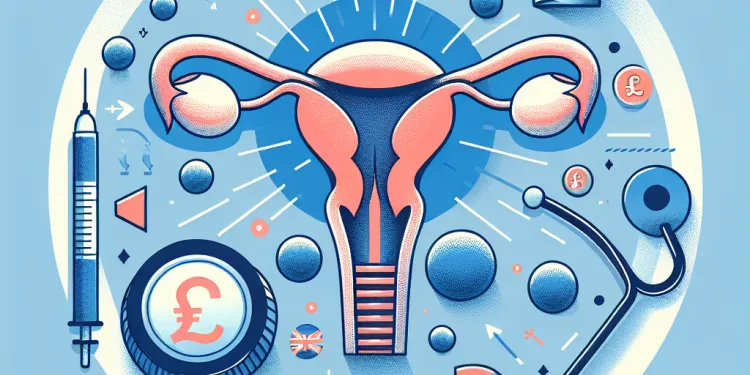
Find Help
More Items From Ergsy search
-
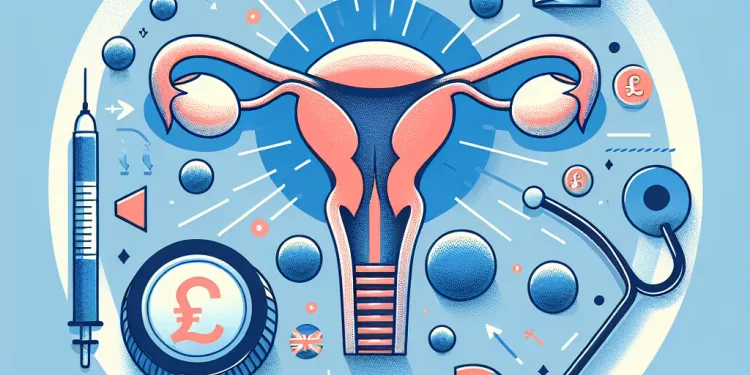
What are the symptoms of testicular cancer?
Relevance: 100%
-
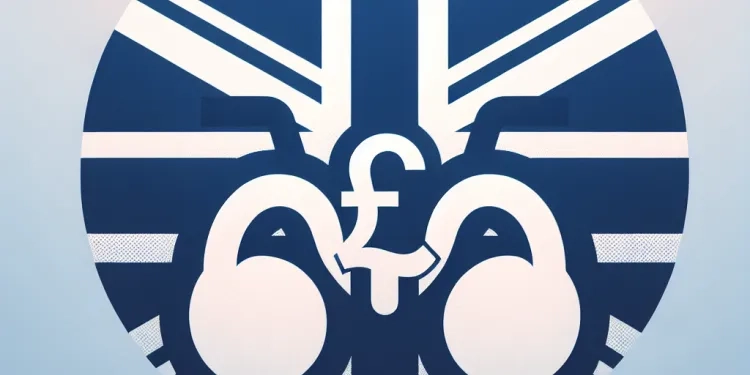
What is testicular cancer?
Relevance: 87%
-
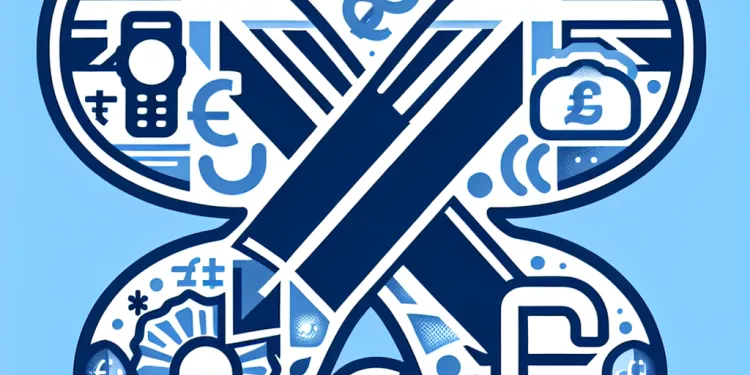
What is testicular cancer?
Relevance: 87%
-
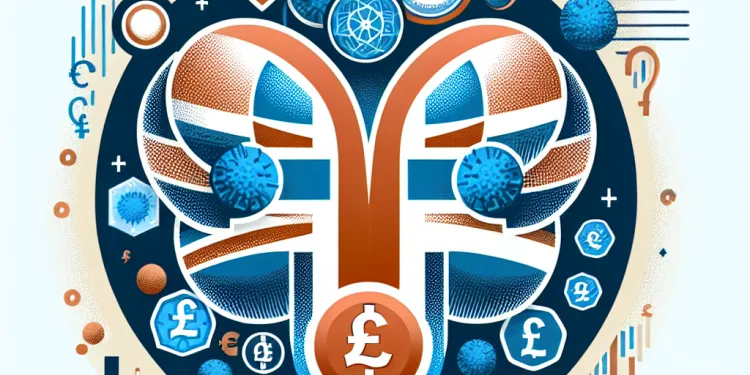
What is testicular cancer?
Relevance: 86%
-
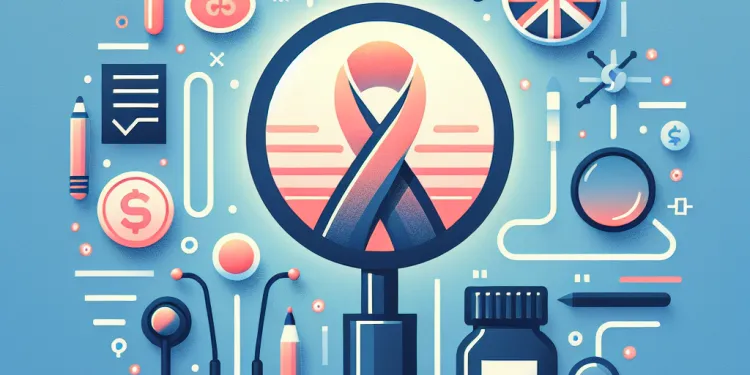
Is testicular cancer treatable?
Relevance: 84%
-
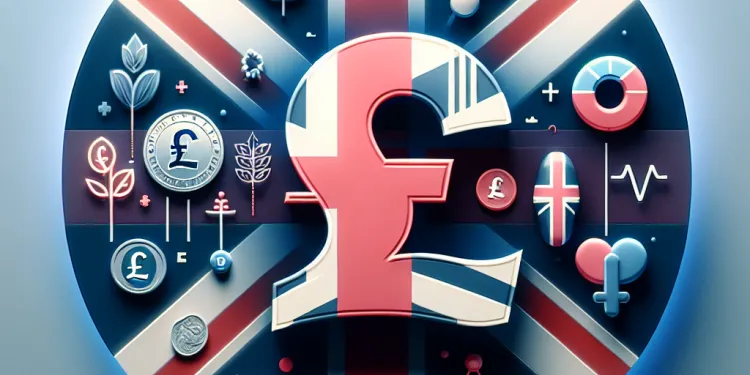
How common is testicular cancer?
Relevance: 83%
-
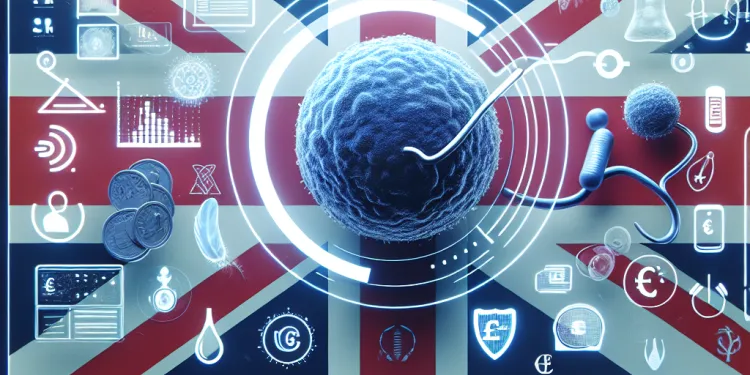
How is testicular cancer diagnosed?
Relevance: 82%
-
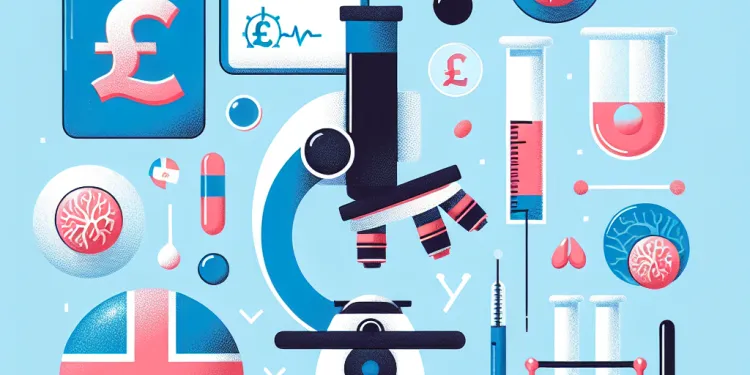
What causes testicular cancer?
Relevance: 81%
-
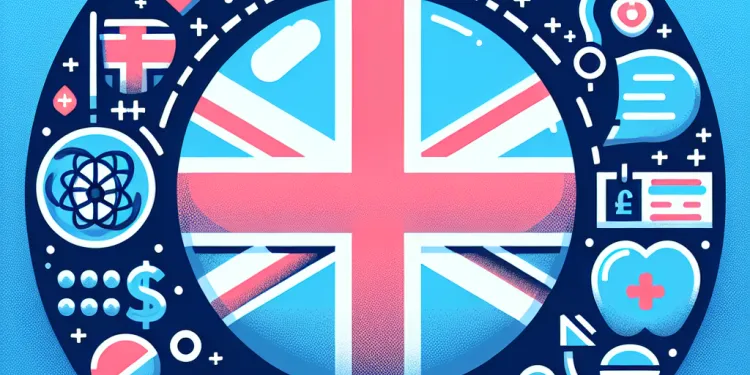
Who is at risk for testicular cancer?
Relevance: 79%
-

What are the stages of testicular cancer?
Relevance: 78%
-
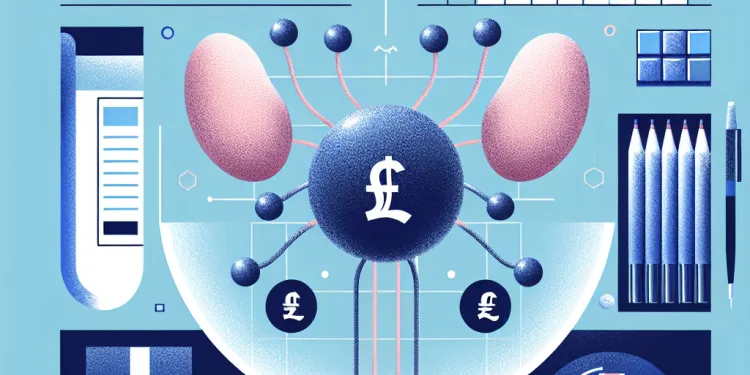
Can testicular cancer spread to other parts of the body?
Relevance: 76%
-
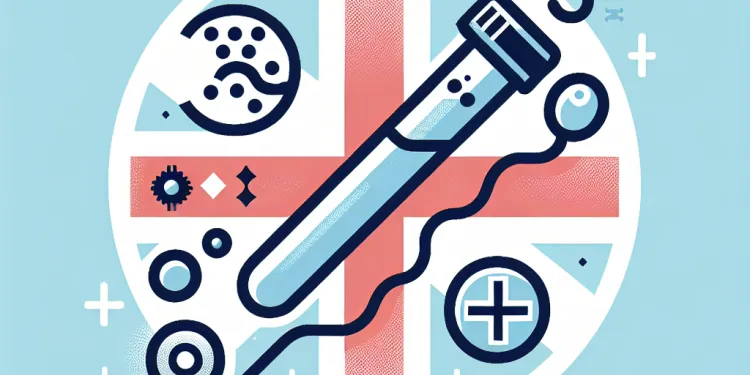
Is fertility affected by testicular cancer?
Relevance: 76%
-

What is the survival rate for testicular cancer?
Relevance: 76%
-

Can testicular cancer recur after treatment?
Relevance: 74%
-
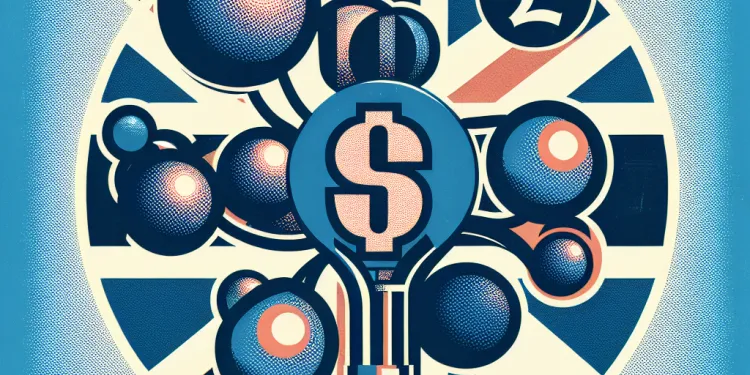
What types of treatments are available for testicular cancer?
Relevance: 73%
-

Are there support groups for those affected by testicular cancer?
Relevance: 72%
-
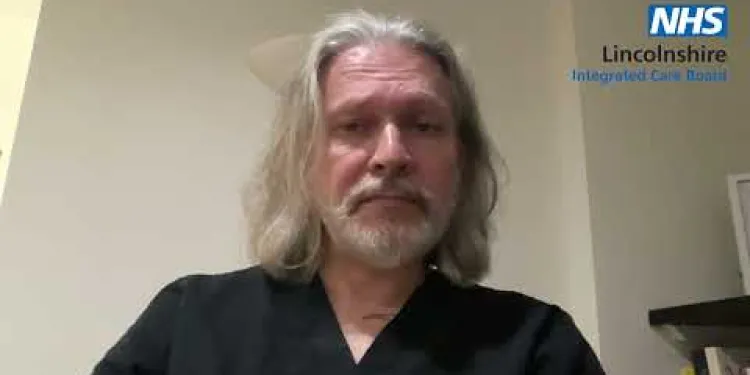
Getting to know your Testicles: Testicular Cancer Awareness with Dr James Howarth, Spilsby Surgery
Relevance: 70%
-
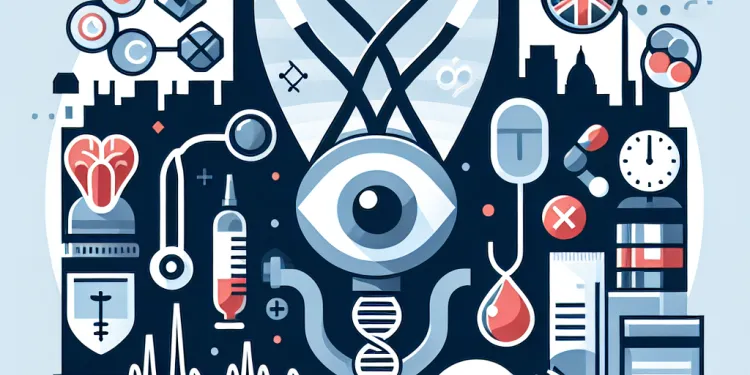
What role do tumor markers play in testicular cancer?
Relevance: 69%
-

Can lifestyle changes help prevent testicular cancer?
Relevance: 69%
-

How can I perform a testicular self-exam?
Relevance: 54%
-

When should I see a doctor about potential testicular cancer?
Relevance: 50%
-
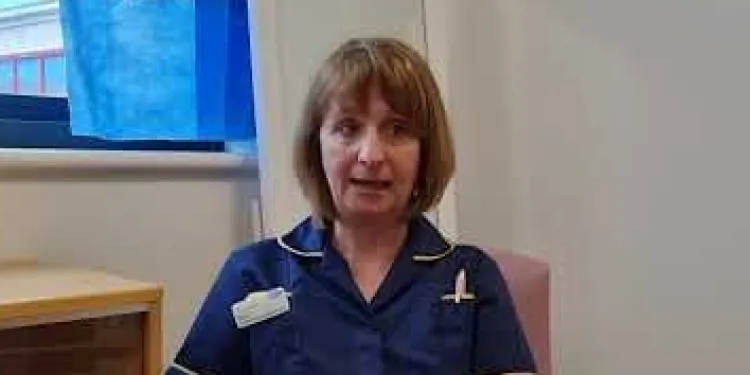
Ovarian cancer - signs and symptoms to look out for
Relevance: 45%
-
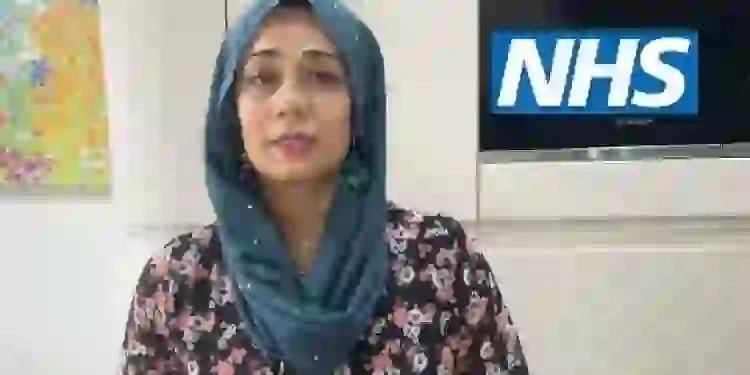
Get cancer symptoms checked by your GP | NHS
Relevance: 45%
-
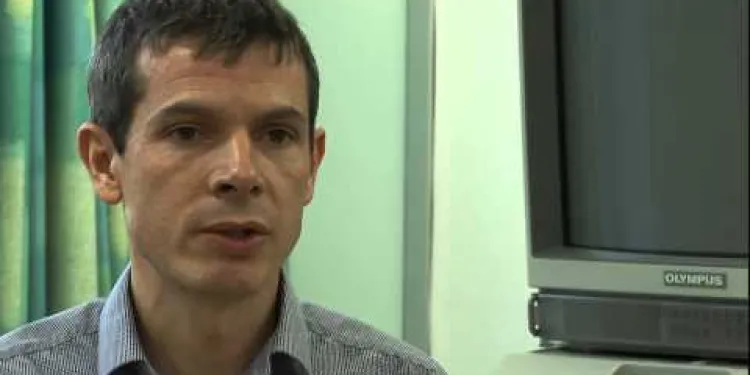
Bowel cancer - Symptoms and signs to look out for
Relevance: 45%
-
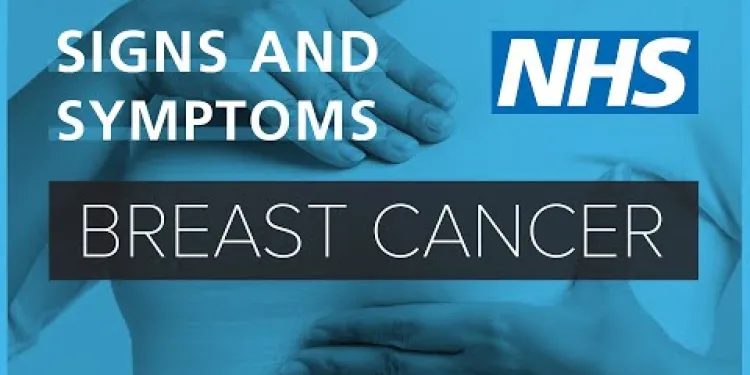
About Breast cancer - signs and symptoms | NHS
Relevance: 45%
-
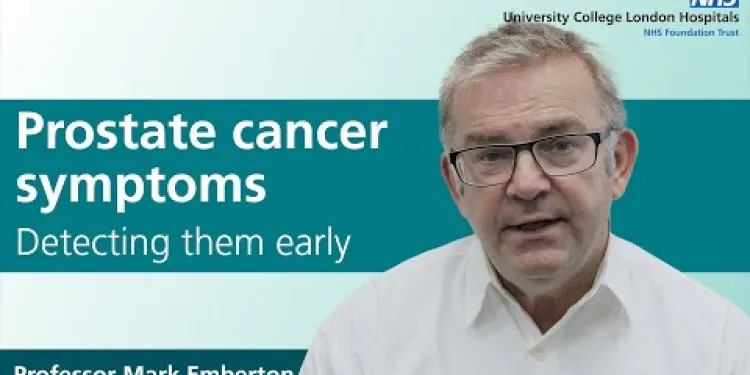
Prostate cancer symptoms - detecting them early
Relevance: 45%
-
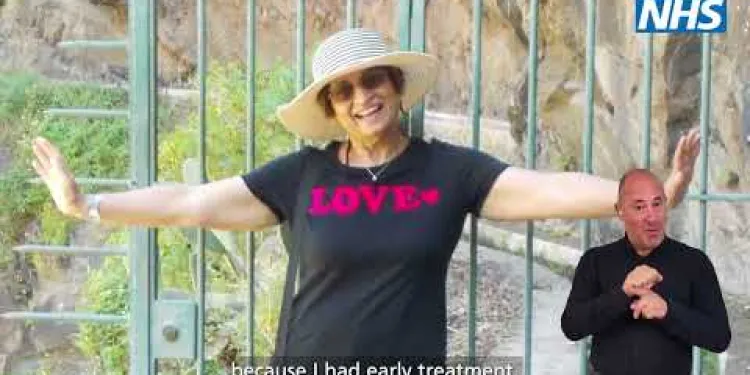
Get cancer symptoms checked by your GP | NHS - BSL version
Relevance: 42%
-
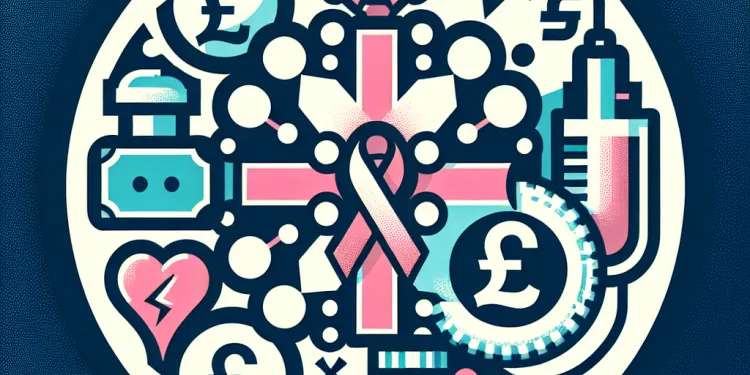
Are there symptoms of an HPV infection?
Relevance: 36%
-
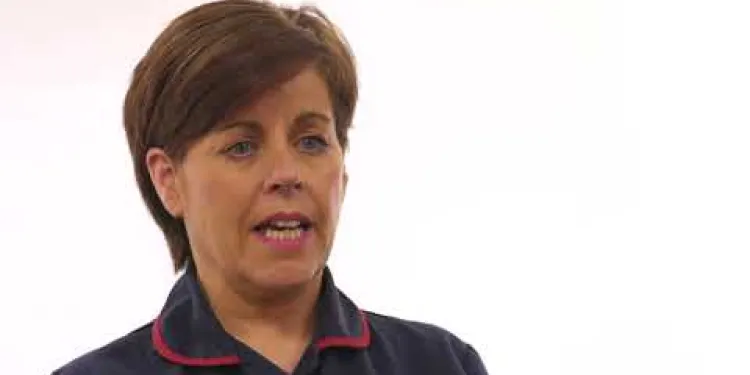
Ovarian Cancer
Relevance: 36%
-
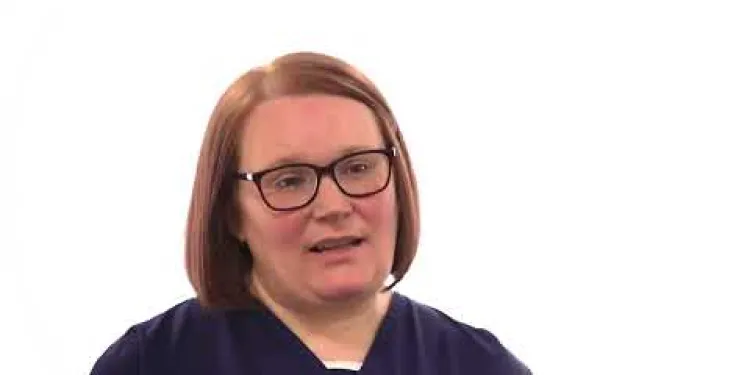
Vaginal Cancer
Relevance: 36%
-
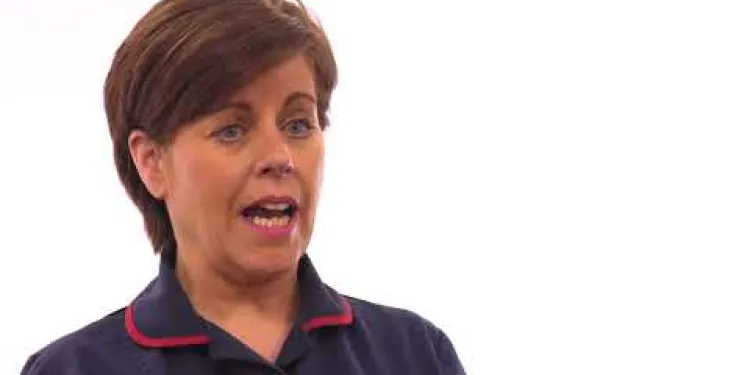
Endometrial Cancer
Relevance: 36%
-
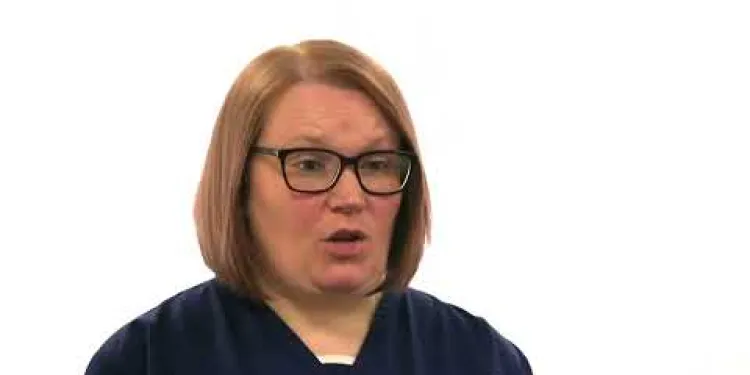
Vulval Cancer
Relevance: 35%
-
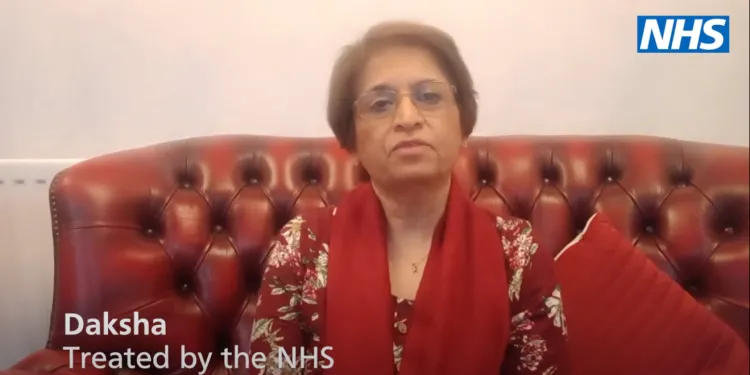
What is Cancer?
Relevance: 35%
-
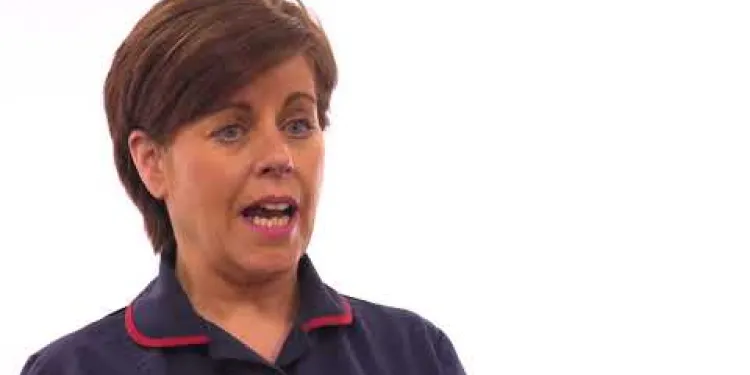
Endometrial Cancer
Relevance: 35%
-
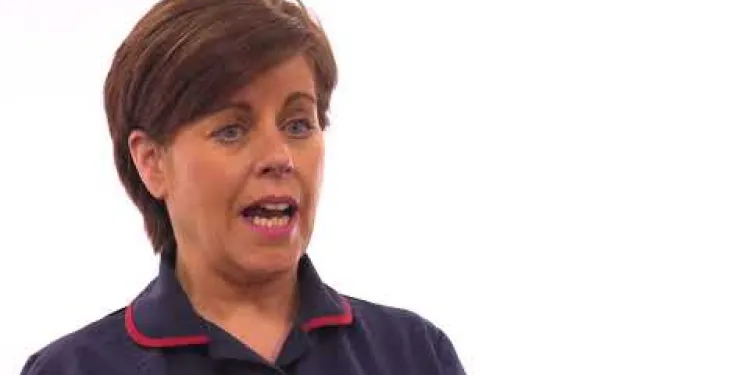
Endometrial Cancer
Relevance: 35%
-
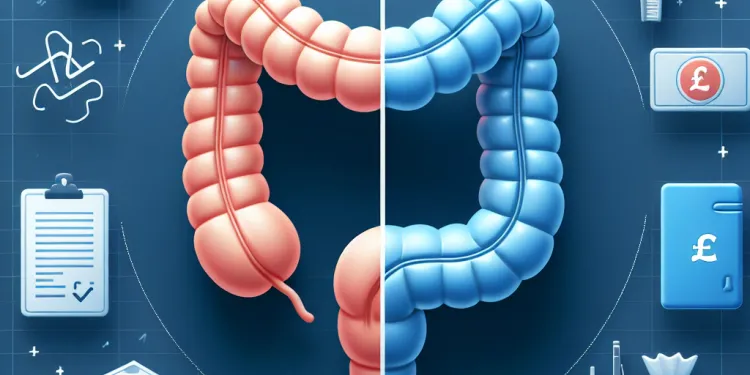
What is the difference between colon cancer and rectal cancer?
Relevance: 34%
-
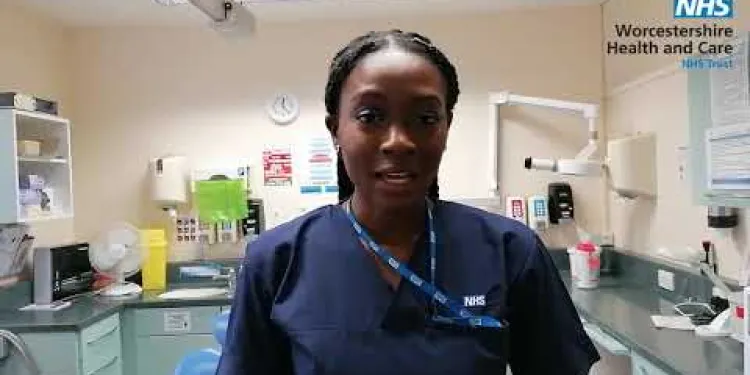
Mouth Cancer Awareness
Relevance: 34%
-
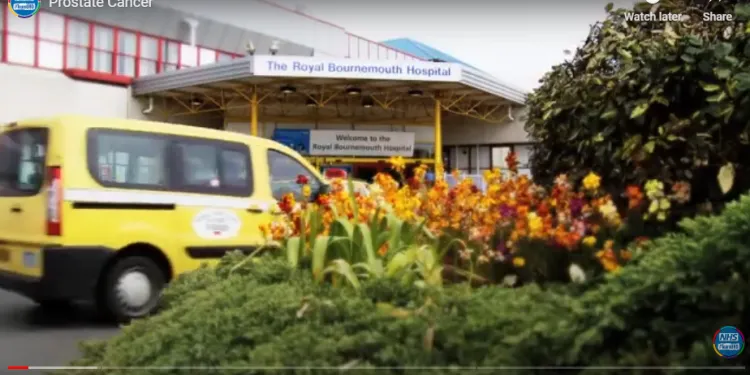
What is Prostate Cancer?
Relevance: 34%
-
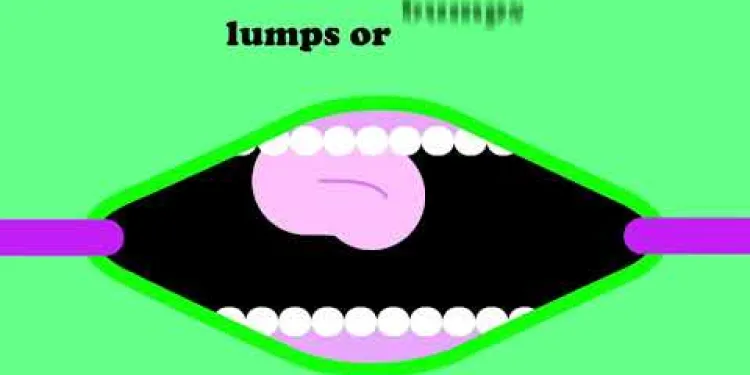
Mouth Cancer Infomercial
Relevance: 34%
-
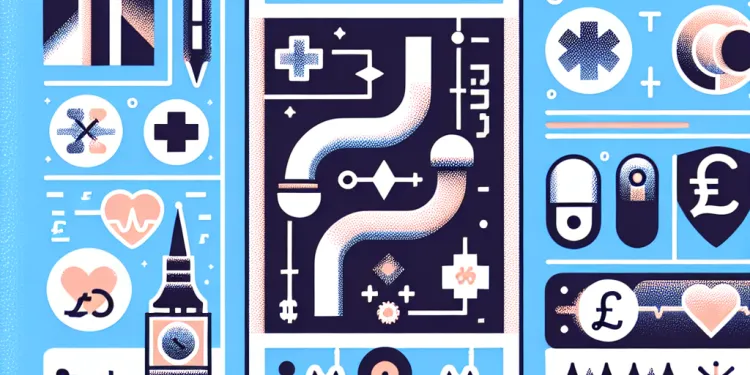
What is Pancreatic Cancer?
Relevance: 33%
What are the symptoms of testicular cancer?
Testicular cancer occurs when abnormal cells in the testicles grow uncontrollably, forming a tumor. It is crucial to recognize the early signs of this cancer, as timely diagnosis can lead to effective treatment and better outcomes. Understanding the symptoms is key in identifying the condition early.
Common Symptoms
One of the earliest and most common symptoms of testicular cancer is a painless lump or swelling in one of the testicles. This lump can vary in size and may be as small as a pea or as large as a marble. Not all lumps are cancerous, but any such abnormality should be evaluated by a healthcare professional.
Another symptom that can indicate testicular cancer is a feeling of heaviness or discomfort in the scrotum. Some individuals report a feeling of increased firmness in the affected testicle compared to the other, or the testicle might appear to be larger or swollen.
Pain and Discomfort
While many testicular cancers do not cause pain initially, some individuals may experience a dull ache or sharp pain in the scrotum or testicle. This pain can also radiate to the lower abdomen or even the groin area.
In some cases, sudden accumulation of fluid in the scrotum may occur, leading to further discomfort. This condition, known as a hydrocele, could be indicative of an underlying issue and should be investigated accordingly.
Additional Symptoms
Though less common, some individuals with testicular cancer may experience symptoms such as back pain, especially if the cancer has spread to lymph nodes or other parts of the body. If cancer spreads to the lungs, symptoms like a persistent cough or shortness of breath might be experienced.
Hormonal changes due to cancer may also lead to breast tenderness or swelling, another symptom to be aware of even though it is relatively rare.
When to Seek Medical Advice
It is important to consult with a healthcare provider promptly when experiencing any of these symptoms. While the presence of these symptoms does not necessarily mean testicular cancer is present, a thorough evaluation can help in diagnosing the cause and initiating appropriate treatment if needed.
Routine self-examinations can aid in early detection, and engaging in regular health check-ups allows for professional assessment and reassurance. Do not delay seeking medical advice, as early intervention is critical in managing testicular cancer effectively.
What are the symptoms of testicular cancer?
Testicular cancer happens when bad cells grow in a man's testicles. These cells can turn into a lump called a tumor. It is very important to know the early signs of this cancer. The sooner you know, the better the treatment can work. Understanding these signs can help find the cancer early.
Common Symptoms
The most common sign of testicular cancer is a lump in the testicle. This lump does not hurt. It can be small like a pea or bigger like a marble. Not all lumps are cancer. But if you find a lump, see a doctor.
Feeling heavy or uncomfortable in the scrotum is another sign. You might feel like one testicle is firmer or bigger than the other. If you notice this, talk to a doctor.
Pain and Discomfort
Many times, testicular cancer does not hurt. But sometimes, you might feel a dull ache or sharp pain in the testicle or scrotum. Pain can also go to the lower belly or groin.
Sometimes, fluid may suddenly fill the scrotum, making it uncomfortable. This is called a hydrocele. It's important to see a doctor if this happens.
Additional Symptoms
Some people with testicular cancer might have back pain. This can happen if the cancer spreads. If cancer spreads to the lungs, you might have a cough or feel short of breath.
Sometimes, there might be changes in hormones that cause the breasts to feel tender or swell. This is rare, but good to know.
When to Seek Medical Advice
See a doctor if you notice any of these signs. These signs do not always mean cancer, but a doctor can help find out what is going on.
Checking your testicles often can help find problems early. Go to regular check-ups with your doctor. Don't wait to get help. Finding testicular cancer early makes it easier to treat.
Frequently Asked Questions
What are common symptoms of testicular cancer?
Common symptoms include a lump or swelling in the testicle, pain or discomfort in a testicle or the scrotum, and a feeling of heaviness in the scrotum.
Can testicular cancer cause back pain?
Yes, testicular cancer can sometimes cause lower back pain if the cancer has spread to the lymph nodes in the back.
Is swelling of the scrotum a symptom of testicular cancer?
Yes, swelling of the scrotum can be a symptom, often accompanied by pain or a feeling of heaviness.
Are there early signs of testicular cancer?
Early signs may include a small, usually painless, lump on the testicle or a change in size or firmness.
Can testicular cancer be painless?
Yes, many cases of testicular cancer are painless, particularly in the early stages. Lumps or swelling might not cause any pain at first.
Does testicular cancer cause breast growth?
Yes, in some cases, hormonal changes due to testicular cancer can cause gynecomastia, or breast growth, in men.
How quickly do testicular cancer symptoms develop?
Symptoms can develop gradually over several weeks or months. It's important to see a doctor if you notice any changes.
Is fatigue a symptom of testicular cancer?
While fatigue is not a common early symptom, advanced testicular cancer can lead to fatigue and other systemic symptoms.
Does testicular cancer cause weight loss?
Unexplained weight loss can occur, especially if the cancer has spread, but it is not a common early symptom.
Can testicular cancer symptoms come and go?
Symptoms like pain might fluctuate, but physical changes such as lumps usually persist and require medical evaluation.
Are testicular lumps always a sign of cancer?
No, not all lumps are cancerous. Some might be cysts or other benign conditions, but it's essential to have any lump evaluated by a doctor.
What sensation might indicate testicular cancer?
A dull ache or a feeling of heaviness in the scrotum can be indicative of testicular cancer.
Is abdominal pain a symptom of testicular cancer?
Abdominal pain can occur, particularly if the cancer has spread to the lymph nodes near the abdomen.
Can testicular cancer lead to infertility?
While testicular cancer itself might not cause infertility, treatments for it, such as surgery or chemotherapy, might affect fertility.
What role does self-examination play in detecting testicular cancer?
Regular self-examinations help individuals notice any changes early, making early detection and treatment more achievable.
Can testicular cancer metastasize?
Yes, if not treated early, testicular cancer can spread to lymph nodes, lungs, liver, or other body parts.
Is a sudden size change in one testicle a symptom?
Yes, sudden changes in size or shape of a testicle can be a symptom and should be examined by a healthcare professional.
Do symptoms of testicular cancer differ by age?
Symptoms are generally similar across age groups, but testicular cancer is most common among younger men aged 15-35.
Can testicular cancer cause swelling of the legs?
Advanced testicular cancer can lead to swelling of the legs due to lymphatic or vascular obstruction by tumors.
What should you do if you experience symptoms of testicular cancer?
Consult a healthcare professional as soon as possible for evaluation and potential imaging tests or ultrasound.
What are common signs of testicular cancer?
Testicular cancer is when bad cells grow in a man's testicles (balls). Here are some signs to look out for:
- Lump or swelling in one testicle
- Heavy feeling in the scrotum (the bag of skin that holds the testicles)
- Dull ache in the lower belly or groin
- Pain or discomfort in a testicle or the scrotum
If you notice any of these signs, tell an adult you trust and see a doctor. It's important to get checked out. You can also use tools like pictures or models of the body to help understand more.
If you find a lump or bump on your testicle, it could be a sign. It might also hurt or feel weird in your testicle or the skin around it called the scrotum. Sometimes, your scrotum might feel heavy.
Can testicular cancer make your back hurt?
Sometimes, testicular cancer can make your back hurt. If you have pain, tell a doctor. They can help you feel better.
Tools to help: You can draw pictures or use a calendar to track when you feel pain. This can help your doctor understand how you feel.
Yes, testicular cancer can sometimes cause pain in your lower back. This happens if the cancer has spread to the small bunches of cells in your back called lymph nodes.
If you find reading difficult, you might find it helpful to:
- Listen to the text using a text-to-speech tool.
- Ask someone to read it to you.
- Break the text into small parts and read slowly.
Can a swollen scrotum mean testicular cancer?
Yes, sometimes the scrotum can get bigger. It might also hurt, or feel heavy.
If you find it hard to read, you can ask someone you trust to read it with you.
What are the early signs of testicular cancer?
Do you want to know how to spot testicular cancer early? Here are some things to look out for:
- A lump in the testicle.
- The testicle feels different or larger.
- Pain in the lower belly or the groin.
If you notice any of these signs, it's important to talk to a doctor. They can help you find out what is going on. You can also ask someone to go with you if you feel worried.
Early signs may be a small lump on the testicle. It usually does not hurt. The testicle might also change in size or feel different.
If you find a lump, it is good to tell a doctor. Ask someone you trust to help.
Do not be scared. It is important to check lumps early. The doctor can help you feel better.
Can you have testicular cancer without feeling pain?
Yes, a lot of the time, testicular cancer does not hurt, especially at the start. Lumps or swelling might not hurt at first.
Helpful Tip: If you find a lump, tell a doctor. It is always good to check, even if it does not hurt.
Can boys or men get bigger breasts if they have testicular cancer?
Yes, sometimes testicular cancer can change hormones. This can make men grow breasts.
How fast do signs of testicular cancer show up?
Problems can start slowly over weeks or months. It’s a good idea to see a doctor if you see any changes.
Does feeling very tired mean you might have testicular cancer?
When you feel very tired all the time, it can be a sign of different things. One of those things could be testicular cancer, but there are many other reasons you might feel tired.
If you are worried, it's a good idea to talk to a doctor. They can help you find out why you are tired and make sure you are okay.
You can also try using tools like picture charts or speaking to someone who can explain things to you. This can help you understand better.
Tiredness is not usually an early sign of testicular cancer. But if the cancer gets worse, it can make you feel very tired and cause other health problems.
Can testicular cancer make you lose weight?
Losing weight without trying can happen if cancer spreads in the body. But this is not usual when cancer is just starting.
Do the signs of testicular cancer appear and disappear?
Sometimes, pain can come and go. But if you find a lump on your body, it usually stays there. You should see a doctor if you find a lump.
Do lumps in the testes always mean cancer?
No, not all lumps mean cancer. Lumps can be harmless. If you find a lump, tell a doctor. They can help you find out more. A doctor can see if it is cancer or something else.
Try using tools like a magnifier on your device to help read text. You can also ask someone for help if you need it.
No, not all lumps are cancer. Some lumps might be cysts. Cysts are not cancer. Other lumps are harmless too. But, it is important to show any lump to a doctor.
What feeling might show testicular cancer?
If you feel a dull pain or heaviness in your ball sack, it could mean you have testicular cancer.
Can belly pain mean you have testicular cancer?
Belly pain can happen if the cancer spreads to tiny parts of the body called lymph nodes near your tummy.
Can testicular cancer stop someone from having babies?
Testicular cancer doesn't stop you from having babies. But the treatments for it, like surgery or medicine, might make it harder to have babies later.
How does checking yourself help find testicular cancer?
Checking your body often helps you see if anything is different. This way, you can find and treat problems quickly.
Can testicular cancer spread to other parts of the body?
Yes, if you don't get help soon, testicular cancer can move to other parts of your body like the lymph nodes, lungs, and liver.
Is one testicle getting bigger a sign of something?
Sometimes, if one testicle gets bigger, it might mean something is wrong. It’s good to get it checked.
Here's what you can do:
- Talk to a doctor if you notice a change.
- Use a mirror to check both testicles. They should look about the same.
- Ask a family member or friend to help if you feel shy.
Remember, doctors are there to help you. It’s okay to ask them questions.
If one of your testicles suddenly gets bigger or changes shape, it could be a sign of a health problem. You should see a doctor.
Do signs of testicular cancer change with age?
Testicular cancer can have different signs for different ages.
People should learn what signs to look for.
If you find a lump or feel pain, tell an adult or doctor.
Use tools like pictures or videos to help understand.
Signs of this cancer are the same for most people, but it usually happens to younger men between 15 and 35 years old.
Can testicular cancer make legs swell?
Sometimes, a type of cancer called testicular cancer can make your legs swell up. This can happen because tumors block the tubes that help move blood or other fluids through your body.
What to do if you have signs of testicular cancer?
If you notice changes in your testicles, tell an adult you trust or go to the doctor. It is important to get help, even if you feel shy or scared.
Some signs to look out for are:
- A lump or swelling in your testicle
- Pain or discomfort in your testicle or scrotum
- A change in size or shape of your testicle
The doctor can help you feel better. Try to talk openly and ask questions. You can also bring a note or use a picture to explain how you feel. Remember, the sooner you see the doctor, the better.
See a doctor quickly. They can check you and might do pictures or special tests like an ultrasound.
Useful Links
This website offers general information and is not a substitute for professional advice.
Always seek guidance from qualified professionals.
If you have any medical concerns or need urgent help, contact a healthcare professional or emergency services immediately.
Some of this content was generated with AI assistance. We’ve done our best to keep it accurate, helpful, and human-friendly.
- Ergsy carfully checks the information in the videos we provide here.
- Videos shown by Youtube after a video has completed, have NOT been reviewed by ERGSY.
- To view, click the arrow in centre of video.
- Most of the videos you find here will have subtitles and/or closed captions available.
- You may need to turn these on, and choose your preferred language.
- Go to the video you'd like to watch.
- If closed captions (CC) are available, settings will be visible on the bottom right of the video player.
- To turn on Captions, click settings .
- To turn off Captions, click settings again.
More Items From Ergsy search
-

What are the symptoms of testicular cancer?
Relevance: 100%
-

What is testicular cancer?
Relevance: 87%
-

What is testicular cancer?
Relevance: 87%
-

What is testicular cancer?
Relevance: 86%
-

Is testicular cancer treatable?
Relevance: 84%
-

How common is testicular cancer?
Relevance: 83%
-

How is testicular cancer diagnosed?
Relevance: 82%
-

What causes testicular cancer?
Relevance: 81%
-

Who is at risk for testicular cancer?
Relevance: 79%
-

What are the stages of testicular cancer?
Relevance: 78%
-

Can testicular cancer spread to other parts of the body?
Relevance: 76%
-

Is fertility affected by testicular cancer?
Relevance: 76%
-

What is the survival rate for testicular cancer?
Relevance: 76%
-

Can testicular cancer recur after treatment?
Relevance: 74%
-

What types of treatments are available for testicular cancer?
Relevance: 73%
-

Are there support groups for those affected by testicular cancer?
Relevance: 72%
-

Getting to know your Testicles: Testicular Cancer Awareness with Dr James Howarth, Spilsby Surgery
Relevance: 70%
-

What role do tumor markers play in testicular cancer?
Relevance: 69%
-

Can lifestyle changes help prevent testicular cancer?
Relevance: 69%
-

How can I perform a testicular self-exam?
Relevance: 54%
-

When should I see a doctor about potential testicular cancer?
Relevance: 50%
-

Ovarian cancer - signs and symptoms to look out for
Relevance: 45%
-

Get cancer symptoms checked by your GP | NHS
Relevance: 45%
-

Bowel cancer - Symptoms and signs to look out for
Relevance: 45%
-

About Breast cancer - signs and symptoms | NHS
Relevance: 45%
-

Prostate cancer symptoms - detecting them early
Relevance: 45%
-

Get cancer symptoms checked by your GP | NHS - BSL version
Relevance: 42%
-

Are there symptoms of an HPV infection?
Relevance: 36%
-

Ovarian Cancer
Relevance: 36%
-

Vaginal Cancer
Relevance: 36%
-

Endometrial Cancer
Relevance: 36%
-

Vulval Cancer
Relevance: 35%
-

What is Cancer?
Relevance: 35%
-

Endometrial Cancer
Relevance: 35%
-

Endometrial Cancer
Relevance: 35%
-

What is the difference between colon cancer and rectal cancer?
Relevance: 34%
-

Mouth Cancer Awareness
Relevance: 34%
-

What is Prostate Cancer?
Relevance: 34%
-

Mouth Cancer Infomercial
Relevance: 34%
-

What is Pancreatic Cancer?
Relevance: 33%


